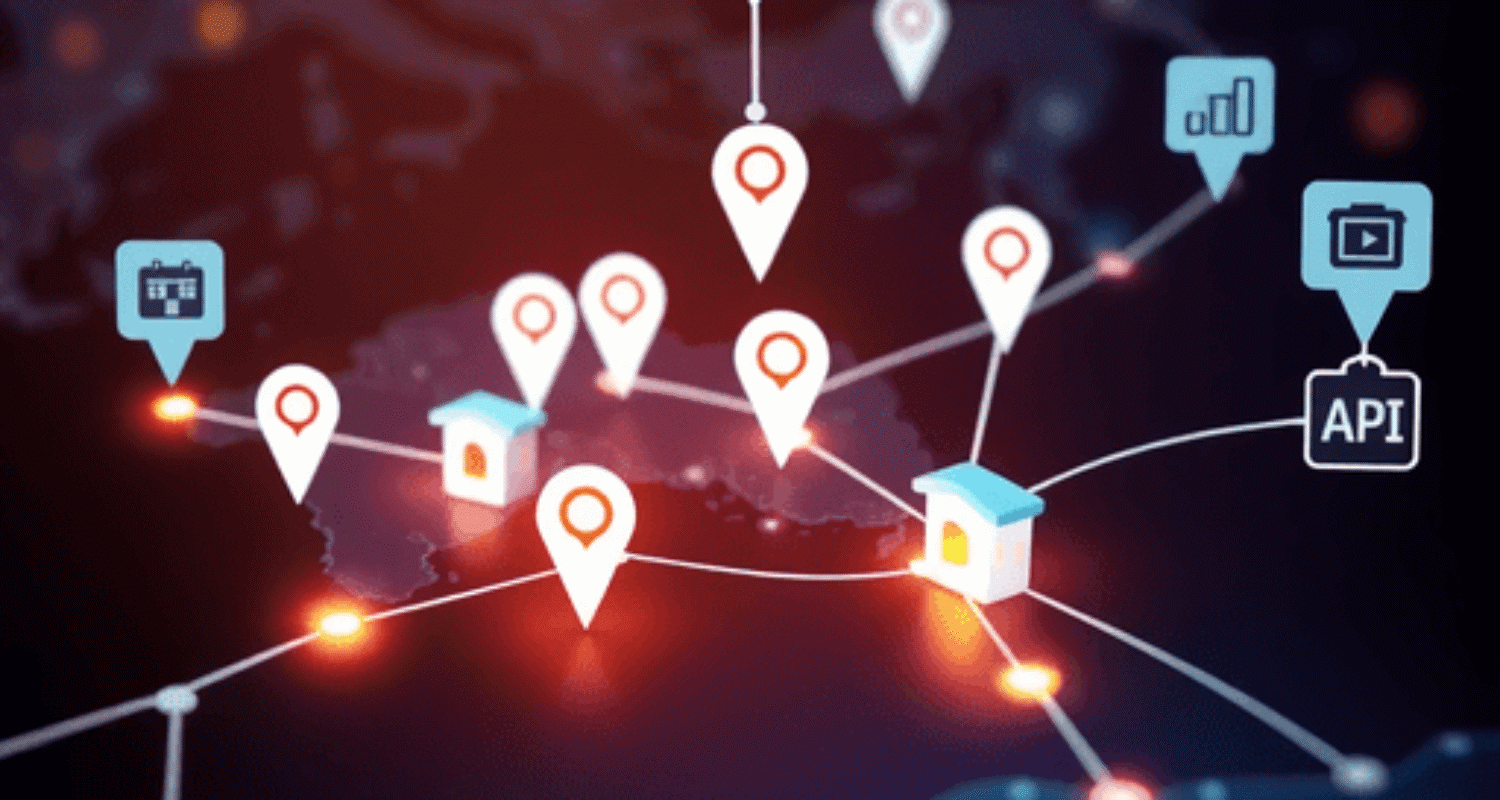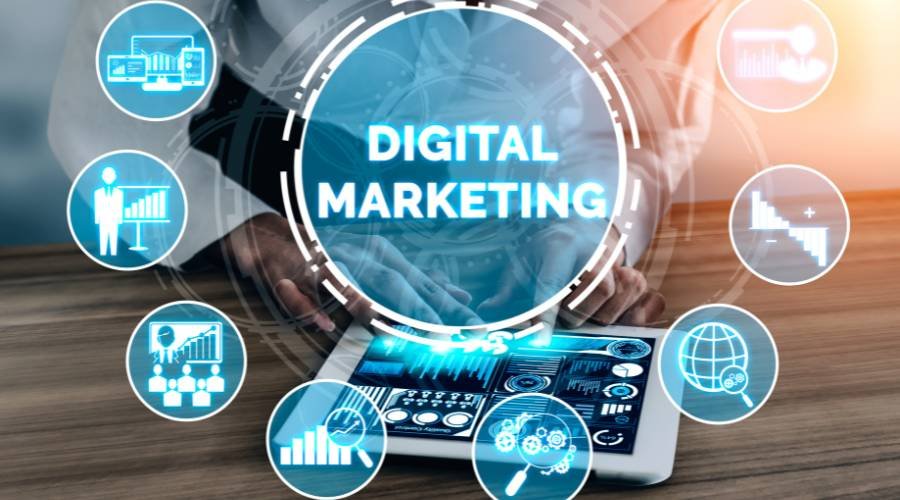AI multi-location marketing is rapidly changing how brands with multiple stores, offices, or franchises connect with their audiences. Managing consistent branding, localized messaging, and personalized customer experiences across different areas presents unique challenges—especially as consumer expectations for relevance and speed increase. AI tools have become game-changers, offering the automation, insights, and personalization capabilities that multi-location businesses require to stay competitive in today’s digital-first world.
AI tools for multi-location business marketing empower businesses to automate content creation, tailor campaigns for specific communities, and analyze large datasets for actionable insights—all while ensuring brand consistency on a larger scale. These technologies, including AI-driven content generators like ChatGPT and advanced audio and image solutions, help bridge the gap between corporate strategy and local execution.

Key Takeaway:
AI tools can transform how businesses with multiple locations approach marketing. By using artificial intelligence, companies can deliver customized campaigns at scale—boosting engagement while streamlining operations. This combination of efficiency and personalization allows multi-location brands to surpass competitors, dominate their niche markets, and establish stronger connections with customers regardless of their location.
Embracing these innovations is not just a trend but a strategic necessity for any organization aiming for sustainable growth in various markets.
Understanding the Challenges Faced by Multi-Location Businesses
Businesses operating across multiple locations encounter a unique set of marketing and operational obstacles that can hinder growth and consistency. Addressing these challenges is essential for ensuring brand integrity and delivering value to local audiences.
1. Limited Resources
Managing several branches often means spreading budgets, technology, and personnel thin. Smaller teams are tasked with maintaining a cohesive brand presence while juggling daily operations, which stretches capacity and slows down campaign execution.
2. Lack of Digital Marketing Expertise
Not every location manager has advanced knowledge in SEO, content marketing, or digital advertising. This gap leads to inconsistent marketing efforts—some locations may excel while others lag behind due to insufficient know-how or outdated strategies.
3. Poor Website Design and User Experience
A unified digital presence is vital. Subpar website design—such as slow load times, non-mobile-friendly layouts, or confusing navigation—directly impacts user experience. Disjointed or poorly optimized local pages can cause potential customers to lose trust or abandon their search altogether.
“When customers visit your website and find inconsistent information or an outdated interface, you risk losing both credibility and conversions.”
Impact on Regional Marketing Effectiveness:
- Campaigns lack localization, failing to resonate with target audiences in different regions.
- Inconsistent messaging diminishes brand trust.
- Lower search visibility for local queries due to fragmented SEO efforts.
- Missed opportunities for data-driven optimization at the branch level.
These hurdles emphasize the need for innovative solutions that empower teams to deliver consistent, high-quality digital experiences across every market they serve.
Using AI to Improve Marketing Strategies for Businesses with Multiple Locations
AI-driven solutions have changed the way multi-location businesses work, especially in areas like:
- Streamlining communication
- Enhancing customer engagement
- Driving performance optimization
These changes have a positive impact on all branches of the business.
Improving Communication Across Locations
AI-powered collaboration platforms enable instant sharing of marketing assets, campaign updates, and training materials, regardless of geographic spread.
Automated workflows reduce manual back-and-forth, ensuring every team receives timely notifications and tailored guidance.
Natural language processing tools translate and localize communications, breaking down language barriers for global teams.
Engaging Customers through Personalization
Machine learning algorithms analyze local customer data—demographics, purchase patterns, online behaviors—to tailor offers and messaging at the neighborhood level.
AI chatbots and virtual assistants deliver prompt, relevant responses 24/7, providing a consistent brand experience while capturing valuable insights for ongoing campaign refinement.
Dynamic content systems adjust website banners, social posts, and email campaigns based on regional events or preferences, making each interaction feel unique.
Optimizing Performance in Local Markets

Predictive analytics forecast demand fluctuations by region, empowering marketers to allocate budgets more effectively and adjust strategies in real time.
Automated reporting dashboards present granular performance metrics for each location—helping leadership identify top-performing sites and areas needing improvement.
AI-based A/B testing tools rapidly surface which creative variations resonate best in specific communities.
By integrating these AI tools into daily operations, multi-location businesses can operate as a unified brand while delivering locally relevant experiences that boost engagement and growth.
Top AI Tools to Supercharge Your Multi-Location Marketing Efforts
We’ve curated a list of the most effective AI tools that can help you optimize your multi-location marketing strategies.
1. ChatGPT: Revolutionizing Content Creation and Consistency Across Locations
Businesses can leverage ChatGPT’s capabilities to automate content generation processes while ensuring messaging remains consistent across all their branches.
Real-world examples
Successful implementation of ChatGPT in multi-location marketing campaigns, such as chain restaurants using it to create localized social media posts while maintaining brand voice.
Pros and cons
Pros:
- Consistent messaging
- Time-saving automation
- Scalable content creation
Cons:
- Requires fine-tuning for specific nuances
- Potential over-reliance on AI-generated content
Do’s and Don’ts
Do’s:
- Regularly review and customize generated content to fit local contexts
- Integrate human oversight
Don’ts:
- Solely depend on AI without checking for cultural relevance or accuracy
2. Video Insights Plugin: Unleashing the Power of YouTube Analytics for Localized Engagement
Understanding how the Video Insights Plugin enables brands to extract valuable insights from YouTube videos relevant to specific regions they operate in.
Case studies
Effective use cases where businesses have tailored their video content strategy according to local preferences, like a global fitness brand adapting workout videos per region.
Pros and cons
Pros:
- Targeted engagement
- Improved video marketing strategies
- Enhanced audience understanding
Cons:
- Data complexity
- Need for continuous monitoring
Do’s and Don’ts
Do’s:
- Utilize insights to refine video content
- Monitor engagement metrics regularly
Don’ts:
- Ignore data trends or fail to update content based on regional feedback
3. Midjourney: Transforming Text into Visual Stories That Resonate Locally
Discussing the role of Midjourney’s image generation technology in creating visually captivating advertisements that speak directly to target audiences within distinct geographical areas.
Examples
Successful ad campaigns powered by Midjourney’s innovative visuals catering specifically to different locations’ cultural nuances.
Pros and cons
Pros:
- High-quality visuals
- Culturally relevant advertising
- Increased engagement
AI for small business can also be utilized here for better results
Cons:
- Requires accurate input data
- Potential creative limitations
Do’s and Don’ts
Digital marketing strategies can help in this area
- Customize visuals based on regional characteristics
- Test ad performance regularly
- Use generic images without considering local culture
- Overlook visual consistency with brand identity
4. Photorealistic Plugin: Elevating Brand Perception Through Stunning Imagery Tailored for Each Location
Exploring how the Photorealistic Plugin enhances image quality while allowing brands to customize visuals based on regional characteristics, thereby strengthening their overall brand identity across various markets they serve.
Case studies
Demonstrations of companies leveraging this plugin effectively in their multi-location marketing initiatives, such as travel agencies showcasing destinations uniquely.
Pros and cons
- Enhanced visual appeal
- Tailored imagery
- Improved brand perception
Conclusion
AI multi-location marketing allows brands to achieve customized marketing on a large scale while also improving operational efficiency. By carefully using advanced AI tools such as content generation, realistic images, audio branding, and local SEO management, businesses can create consistent and personalized brand experiences in every market they operate in. The secret is to combine automation with local understanding, making sure that each location genuinely connects with its audience while still upholding brand values. By strategically using these technologies, multi-location businesses can adapt to changing customer expectations, increase engagement, and outperform competitors in various areas.
FAQs (Frequently Asked Questions)
What are the main challenges faced by multi-location businesses in digital marketing?
Multi-location businesses often struggle with limited resources, lack of digital marketing expertise, and poor website design that negatively impacts user experience. These challenges hinder their ability to effectively market across different regions and deliver consistent brand messaging.
How can AI tools enhance marketing strategies for businesses with multiple locations?
AI tools streamline communication between dispersed teams, boost customer engagement through personalized experiences, and optimize performance metrics tailored to diverse local markets. This enables multi-location businesses to deliver targeted campaigns at scale while improving operational efficiency.
Which AI tools are most effective for optimizing multi-location marketing efforts?
Top AI tools include ChatGPT for automated and consistent content creation; Video Insights Plugin for localized YouTube analytics; Midjourney for generating culturally relevant visual stories; Photorealistic Plugin for enhancing location-specific imagery; ElevenLabs for maintaining a consistent brand voice across languages; and Uberall for comprehensive location management and local SEO optimization.
How does ChatGPT support multi-location marketing campaigns?
ChatGPT revolutionizes content creation by automating generation processes while ensuring messaging consistency across all branches. It helps maintain brand voice coherence and saves time, although users should follow best practices to avoid generic or inaccurate outputs in localized contexts.
What benefits does Uberall offer to enterprises managing numerous physical store fronts worldwide?
Uberall provides a comprehensive location marketing platform featuring automated listing management on directories like Google Maps and Apple Maps, along with robust local SEO optimization tools. This streamlines location management at scale and supports global brands in enhancing their online presence during international expansion.
Why is leveraging AI tools crucial for multi-location businesses in today’s digital landscape?
AI tools empower multi-location businesses to deliver tailored yet cohesive brand experiences to customers regardless of location. They enable scalable personalized marketing, improve operational efficiency, and help overcome regional marketing challenges, making them essential in the competitive digital marketplace.




